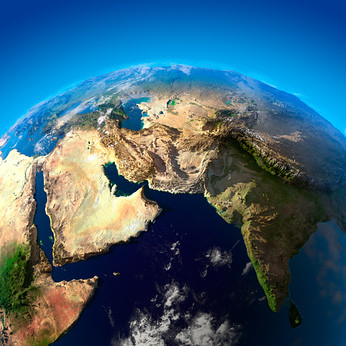As America Exits Iraq, Iran Readies to Enter
By Jordan McGillis
“Today, I can report that, as promised, the rest of our troops in Iraq will come home by the end of the year,” said President Obama from the White House on October 21.
On November 27, 2008, the Iraqi parliament ratified a Status of Forces agreement (SOFA) stipulating that the United States would remove all troops by the end of 2011. Nevertheless, Iraqi and American officials shared a tacit understanding that thousands of American troops would be kept on as trainers beyond that date. The exact number of troops was never determined and proposals ranged from as high as 50,000 to as low as the 3,000 proposed by Secretary of Defense Leon Panetta.
As the endgame approached, however, the negotiations took an unexpected turn. On October 4, after a meeting of high-ranking Iraqi officials, including Prime Minister Nuri al-Maliki, the Iraqis announced publicly that they would accept the presence of American troops beyond the end of the year, but would not grant the remaining Americans immunity from Iraqi law. To American negotiators, such an arrangement was unacceptable. Thus, two weeks later came the announcement that the 40,000 remaining American troops would be withdrawn from Iraq entirely by year’s end.
Although large segments of the American public are pleased with the imminent withdrawal, a pledge made by President Obama during his 2008 election campaign, the exit will soon prove unwise. Without an American troop presence, Iraq will not have the wherewithal to maintain its security.
The Iraqi population is still rife with social cleavages and the most recent elections were characterized by marked sectarian divides. In addition to the tenuous political situation, the Iraqi security forces are in but a nascent stage of development, vulnerable to assaults from beyond their borders and, perhaps most troublingly, assaults from within. This weakness is understood in Iraq, and it is precisely why the exit of American troops is considered to be of paramount importance to a vocal portion of Iraqi society led by Moqtada al-Sadr.
Al-Sadr, a violent anti-American Shiite cleric, is the most powerful man in Iraq. For years, al-Sadr was the thorn in America’s side, wreaking havoc with his private militia known as the Mahdi Army. In the 2010 elections, his unexpected patronage of Nuri al-Maliki was considered the catalyst for the prime minister’s victory. It can now only be assumed that al-Sadr’s virulent anti-Americanism, coupled with his daunting political pull, is responsible for the Iraqi refusal to grant American troops immunity. With American forces now on the way out, al-Sadr and his legions lay in wait, poised to seize control of the country.
As America withdraws, the influence of al-Sadr will undoubtedly soar, and with it, the influence of his financial and ideological backer, the Islamic Republic of Iran.
Since the establishment of the Islamic Republic in 1979, Iran has waged an ongoing, but often covert, war against American interests in the Middle East and North Africa. Iran resents American involvement in the region and seeks to establish itself as the preeminent power in the area. Iran imagines a Middle East purged of Western influences and guided by the edicts of Islam; it uses violence to make its vision a reality. Attacks by Iranian proxies have been numerous and horrific. The attacks include the 1983 bombing of U.S. Marine barracks in Lebanon that killed 241 and the 1996 bombing of the Khobar Towers in Saudi Arabia that killed nineteen. Iran has rarely acted on its own in this series of assaults, but rather has used affiliated organizations run by non-state actors. The evidence indicates that al-Sadr is Iran’s latest henchman.
The exit of American security forces from Iraq creates a power vacuum that gives Iran the opportunity to exploit its relationship with the local Shiite community and advance its Islamic totalitarian agenda. As it has done in Lebanon with Hezbollah and Israel with Hamas, Iran will seek to exert its will through a proxy. Since signing a ceasefire with the Iraqi military in 2008, Moqtada al-Sadr has been building a network within Iraq and strengthening his personal ties with Iran in order to become the very proxy Iran needs. The vehicle by which al-Sadr and Iran will operate is a quasi-political, radical Islamist organization known as Mumahidoon, the successor to al-Sadr’s Mahdi Army.
Though many have praised President Obama’s announcement as another foreign policy success, the uncomfortable truth is that the withdrawal of American troops from Iraq is yet another misstep that will embolden our enemies. As we rapidly approach the conclusion of the eight year war in Iraq, it is not America that is emerging victorious, it is our primary adversary, Iran.


An insightful essay! The fruits of the Obama administration’s Middle East policy will the much longed for Muslim Caliphate. A mess some future president will have to deal with – if Israel doesn’t do so first.